Advertisement
Review
Huntington Theatre Company's 'Top Girls' Is Top-Drawer
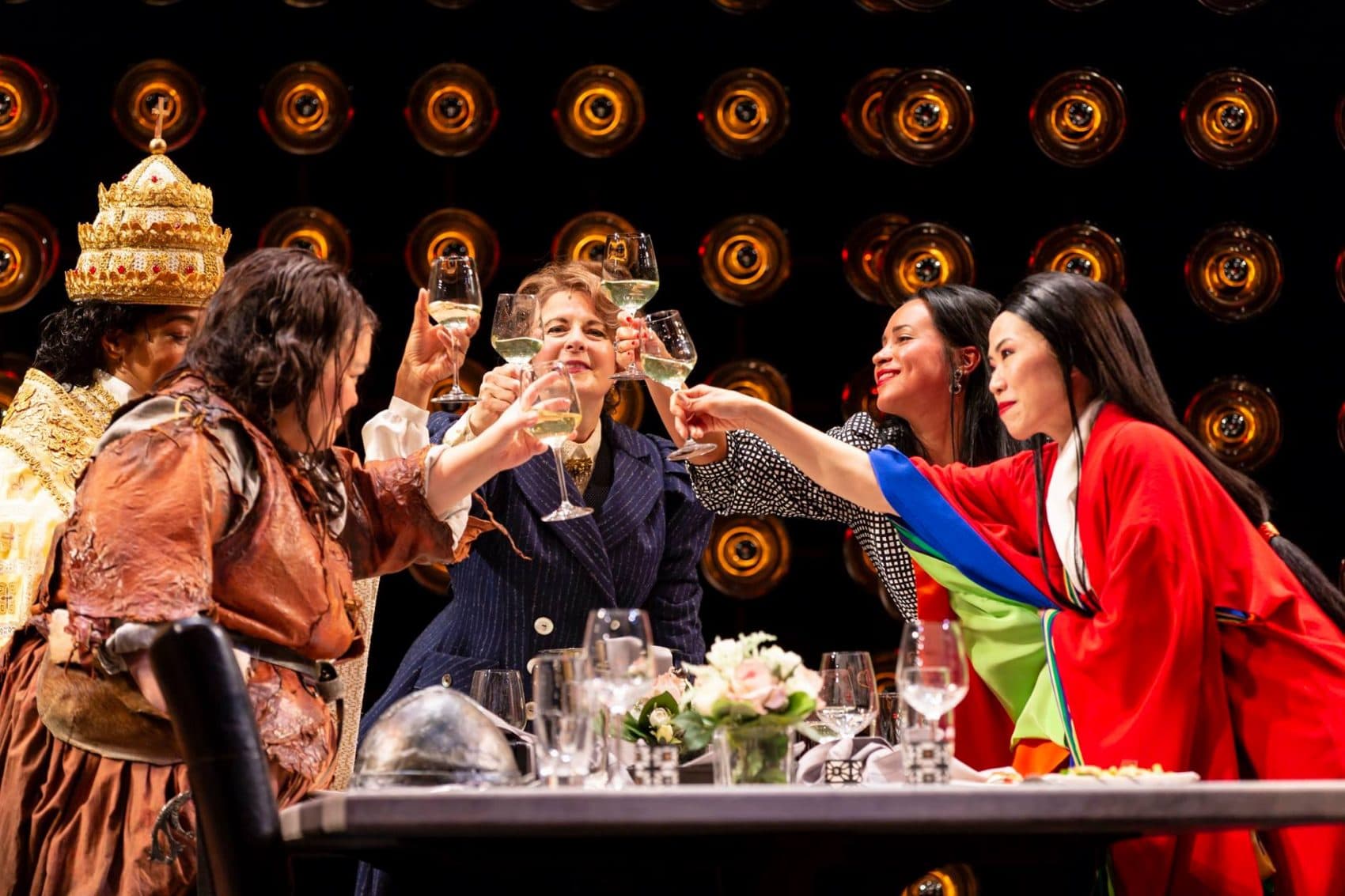
Thirty-six years in, shouldn’t “Top Girls” seem more dernier than avant-garde? But revered British playwright Caryl Churchill’s feminist groundbreaker is as strange, stirring and discombobulating as ever, its famously surreal first act giving way to a more naturalistic family drama that runs a sharp fingernail across issues of gender, class and power. Churchill is such a strikingly original writer that even her old — this one set in the Thatcher thicket of the early 1980s — seems new.
Of course, “Top Girls” has had any number of revivals, most of the British ones helmed by original director Max Stafford-Clark, who most recently resuscitated the work in 2011-12. On this side of the pond, a 2008 Manhattan Theatre Club revival featured a top-gun cast that included Elizabeth Marvel, Mary Beth Hurt and Marisa Tomei.
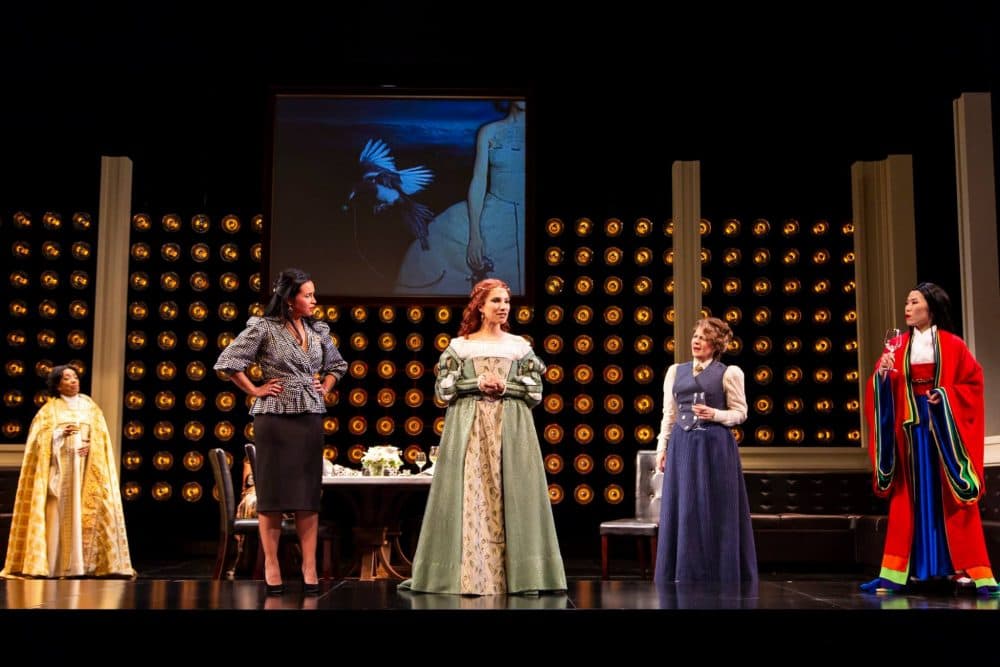
The current staging by the Huntington Theatre Company (at the Huntington Avenue Theatre through May 20) is directed by Liesl Tommy, whose previous Huntington outings have included powerful productions of “A Raisin in the Sun,” “Ma Rainey’s Black Bottom” and “Ruined.” A native of South Africa and the first woman of color to receive a Tony nomination for directing a play, Tommy has cast Churchill’s political fantasia with diversity as a priority. And she has assembled an excellent if untraditional ensemble, most of whose members play at least two parts.
Except for the carry-over of one character, you could return to “Top Girls” after intermission and think you had walked into the wrong theater. The first act comprises a fantastical dinner party in the mind of Marlene, who has invited an eclectic collection of historical and/or fictional characters to help her celebrate a significant promotion at work. Attendees include Victorian traveler Isabella Bird, 13th-century Japanese royal concubine and later Buddhist nun Lady Nijo, probably apocryphal 9th-century Pope Joan (here wearing a tiered wedding cake of a miter), Dull Gret from the Bruegel painting of peasant women battling devils and the impossibly Patient Griselda, the obedient wife featured in tales by Boccaccio, Petrarch and Chaucer.
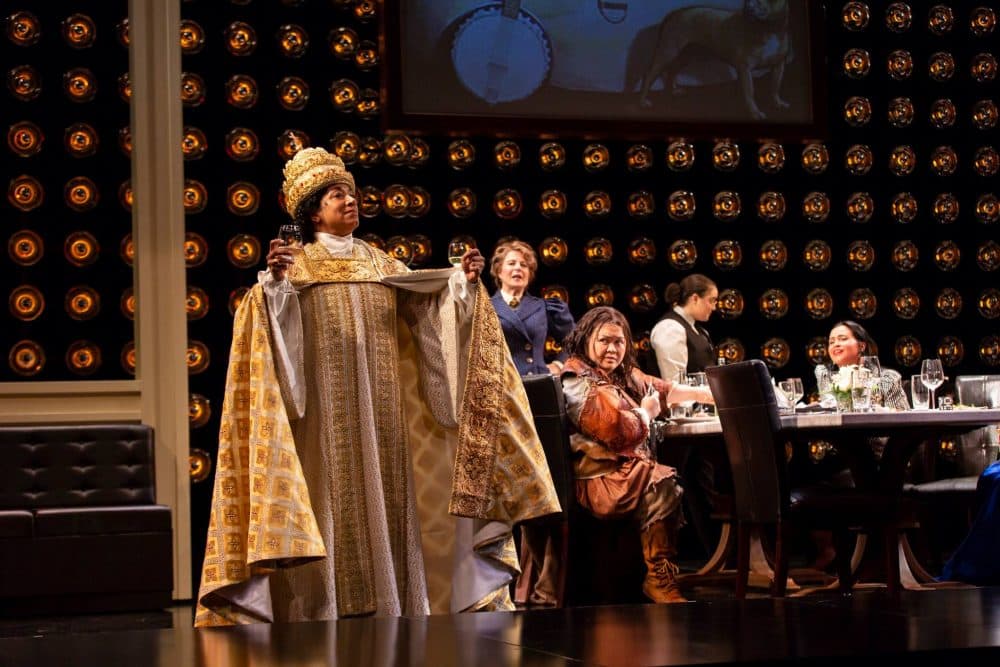
Arriving one by one and ceremonially received with double-cheek kisses or projected selfies, the guests spend the increasingly clamorous act guzzling wine and talking over one another, in trademark Churchill overlap, mostly about themselves, the men who did them wrong and what Marlene calls their “extraordinary achievements,” her own rise to the managing directorship of a headhunting firm included.
Festive anecdote piles upon mournful one (most of these involving the births and losses of children) as the women amuse and sometimes agitate one another, often speaking at the same time, until Dull Gret, sword in hand and helmet on head, bounds up on the dining table to relive her battling descent into hell and Pope Joan vomits loudly into a champagne bucket. A loud choral swell leads us out into intermission.
We return to tougher, more mundane times and a Marlene torn between her determined rise in the workplace and the family that she, rather like the Thatcher government, has ruthlessly left behind. In three naturalistic if sometimes shocking scenes, we meet Marlene’s worn-out single-mom sister and her ill-equipped, disadvantaged niece as well as some brittle female colleagues and the clients over whom they lord like men, in the ostensible interest of finding the women marginally better employment in what remains a man’s world.
But “Top Girls” is more than a loopy distaff fantasy ushering in a treatise. A prolific socialist feminist, Churchill employs a distilled and deliberately fractured style to get at truths that aren’t just political but also shattering. In “Top Girls,” the main heartbreaker is Marlene’s clingy, slow-witted niece, Angie, played at the Huntington with cocky abandon and hapless wonder by a big, beaming Carmen M. Herlihy. And that’s after she has conquered both Beelzebub and the breadbasket as Dull Gret.
No slave to linear structure, Churchill first introduces Angie at 16, bullying 12-year-old pal Kit (her only friend) as the two hide from Angie’s mom, Joyce, in a ramshackle backyard shelter somewhere in the provinces. Angie harbors a homicidal rage toward her mom and seems to regard Marlene as a possible ticket out of her dead-end life — though it’s clear that Angie lacks the resources to become a top girl and Marlene doesn’t have time for bottom ones.
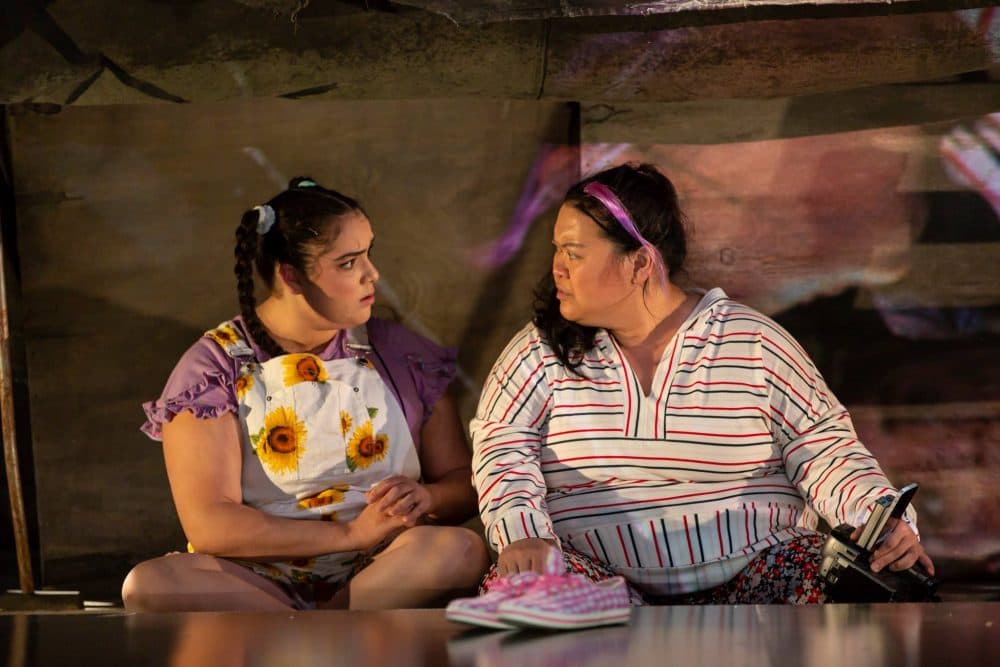
But the play’s revealing final scene occurs a year earlier when Marlene pays a rare visit to her sister and niece, bearing gifts, guilt and condescension. There are presents for Angie, to whom even the boxes and tissue paper are sacred. And before the night is out, secrets have been spilled and the sisters have duked it out in a bitter war right out of Trump Land — from which, evidently, there can be no return.
Convincingly played by Carmen Zilles and Sophia Ramos, Marlene and Joyce’s words overlapping in a cacophony of love-hate and riven principles, the argument — personal, partisan and punctuated by laughter, tears and the jerking of knees — is both terribly sad and terribly final. It’s like a prequel to what might play out in a million cheap-paneled, threadbare American living rooms in 2018.
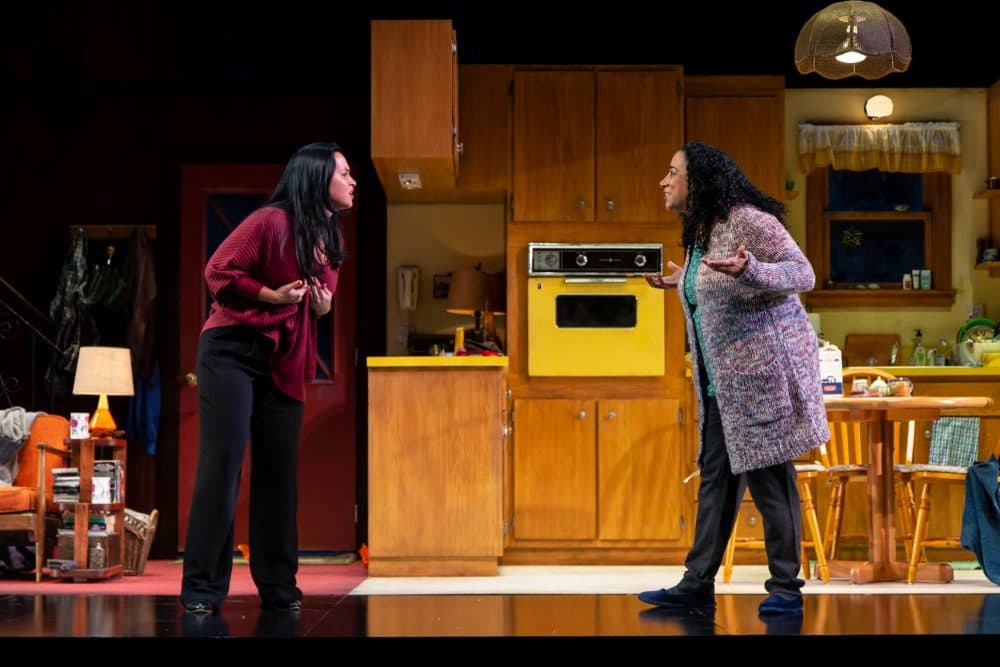
The Huntington production is both extravagant and subtle, particularly in its deployment of accents to denote social class, with Marlene’s skidding, when she drinks, from one acquired and polished to a coarser native tongue. I can’t say that I totally understood Rachel Hauck’s set design, with its backdrop of what looked like golden headlights pulsing along with the music to suggest the gaudy 1980s. But its fluidity serves the time- and locale-hopping well.
And the acting by a mostly minority cast is uniformly accomplished, with Vanessa Kai a standout as Lady Nijo, brandishing her richly layered silks and triumphant memory of having beaten an emperor with a stick. Elia Monte-Brown’s Patient Griselda, beaming a Stepford smile, is far saintlier than Ramos’s disarmingly earthy Pope Joan. And local diva Paula Plum is all Victorian pluck and daffy politesse as the European adventuress whose glimpse of a Moroccan emperor was “marvelous while it lasted.” Top girls all — uh, make that top women.
Huntington Theatre Company’s production of “Top Girls” continues through May 20 at the Huntington Avenue Theatre.
